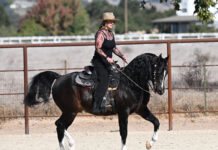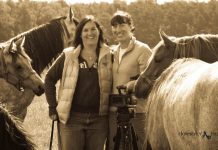Dental problems in horses tend to be hidden, often causing the horse to suffer in silence. This is why routine dental care is so important, advises the British Equine Veterinary Association (BEVA). Now, thanks to BEVA’s new online dental resources, owners can confidently navigate the numerous dental care options on offer to make sure their horse never has to suffer in silence.
Routine dentistry in the horse is not just about rasping teeth – in fact this is the straightforward part. The examination of the mouth is by far the most important aspect, just as it is in human dentistry. Equine vets are trained not only to look at the whole of horse’s mouth but also the horse as a whole.
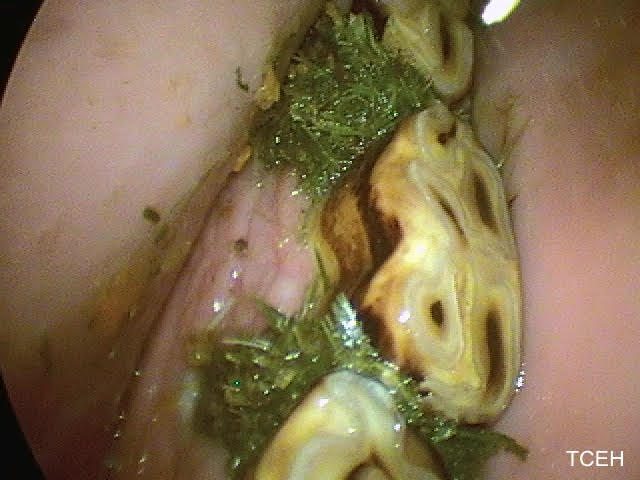 |
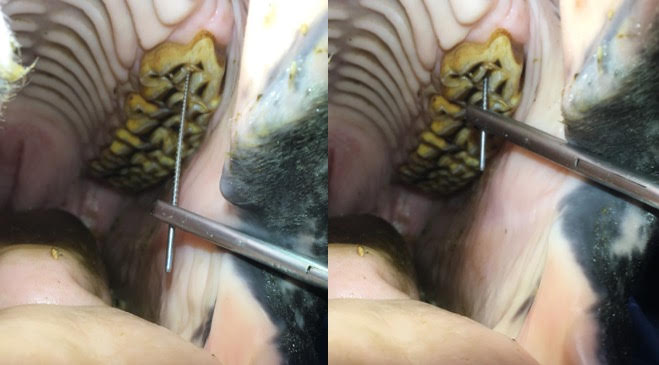 |
|
Diastema: Food pocketing and periodontal disease in diastema adjacent to a displaced mandibular cheek tooth |
Horse with deep cavity of the mesial infundibulum of tooth 206 |
BEVA’s new online resource has been compiled specifically for horse owners. It explains exactly what routine dentistry entails and who is qualified to do what in your horse’s mouth – there are strict regulations limiting what non-vets can do.
“The term ‘dentist’ should only be applied to the human field and there is no direct equine equivalent, though vets with diploma level qualifications are the nearest thing,” explains Neil Townsend MSc BVSc Cert ES (Soft Tissue) DipECVS DipEVDC (Equine) MRCVS RCVS Specialist in Equine Surgery European Specialist in Equine Dentistry. “Only veterinary surgeons can administer treatments such as antibiotics and anti-inflammatories and provide sedation, whether oral or intravenous.”
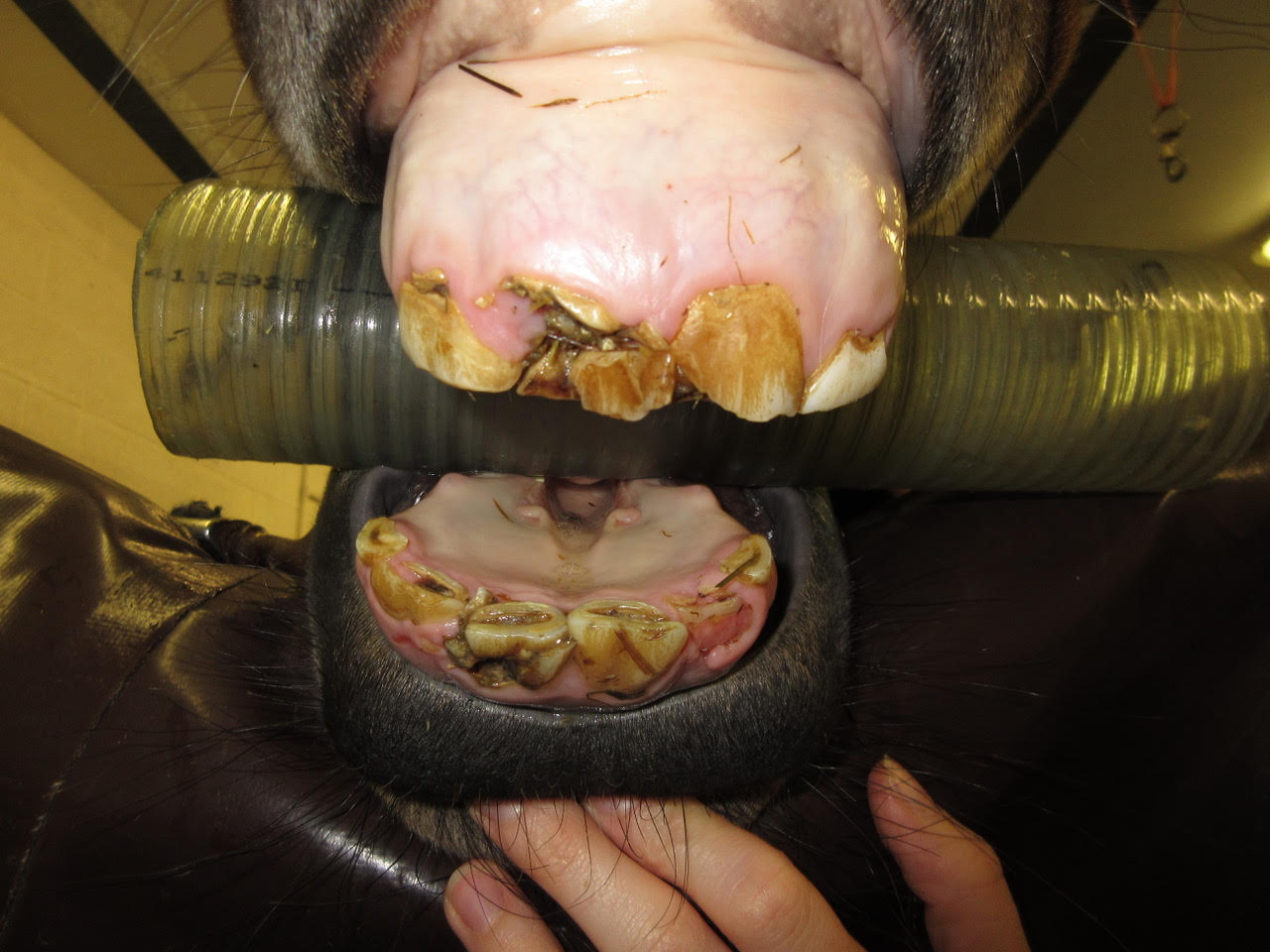 |
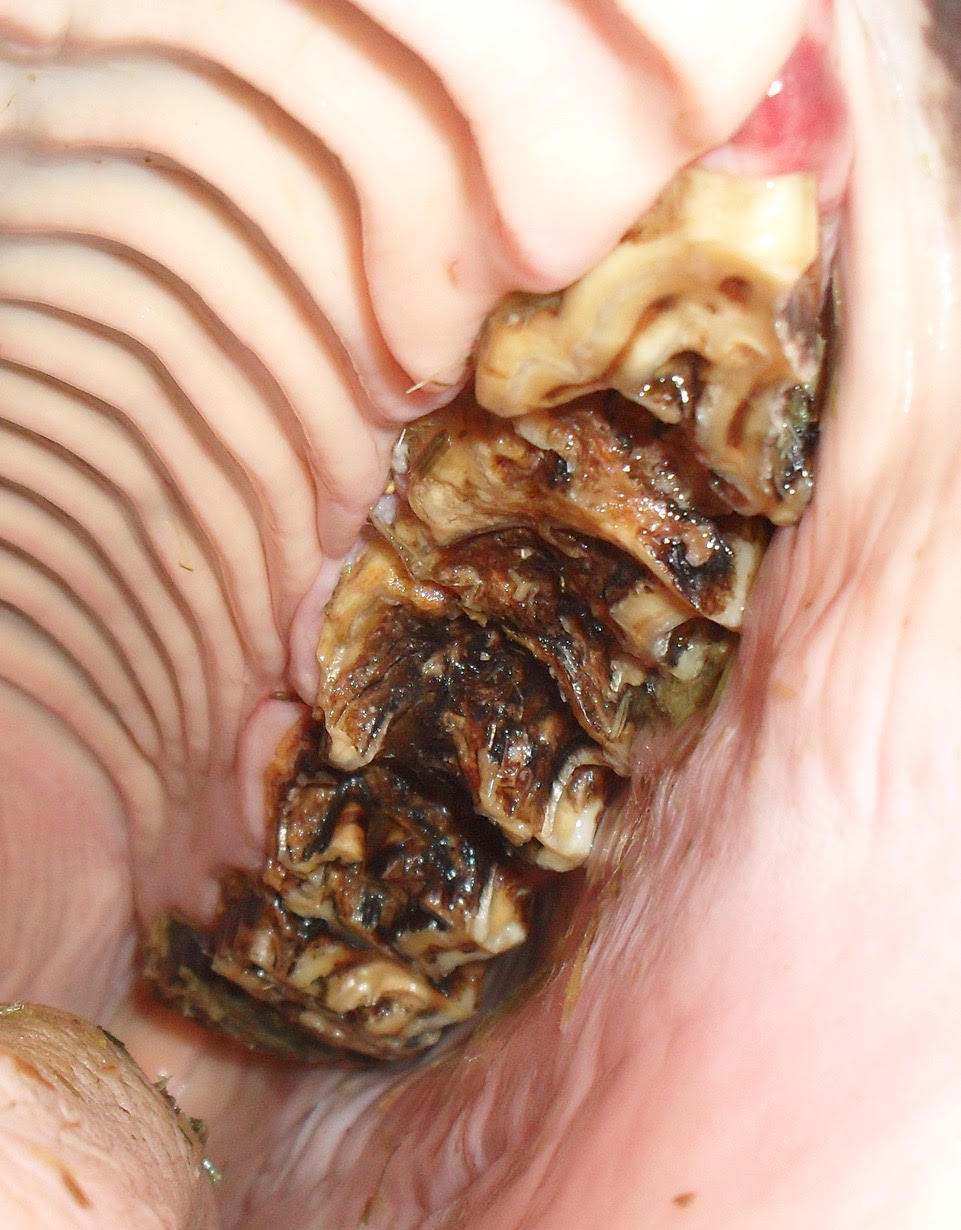 |
|
Young horse with multiple fractured incisors due to trauma |
Severe widespread caries in a horse fed an inappropriate high sugar diet |
The online guide explains the various qualifications of equine vets and equine dental technicians. In terms of vets RCVS Specialists are at the top of the qualification tree. Next come those with the Advanced Practitioner status in Equine Dentistry and then there are vets who have passed the BEVA/BVDA (British Veterinary Dental Association) Equine Dental Technician Exam. With regard to Equine Dental Technicians the guide recommends that owners use those who are members of the British Association of Equine Dental Technicians (BAEDT) or category 2 members of the World Wide Association of Equine Dentists (WWAED).
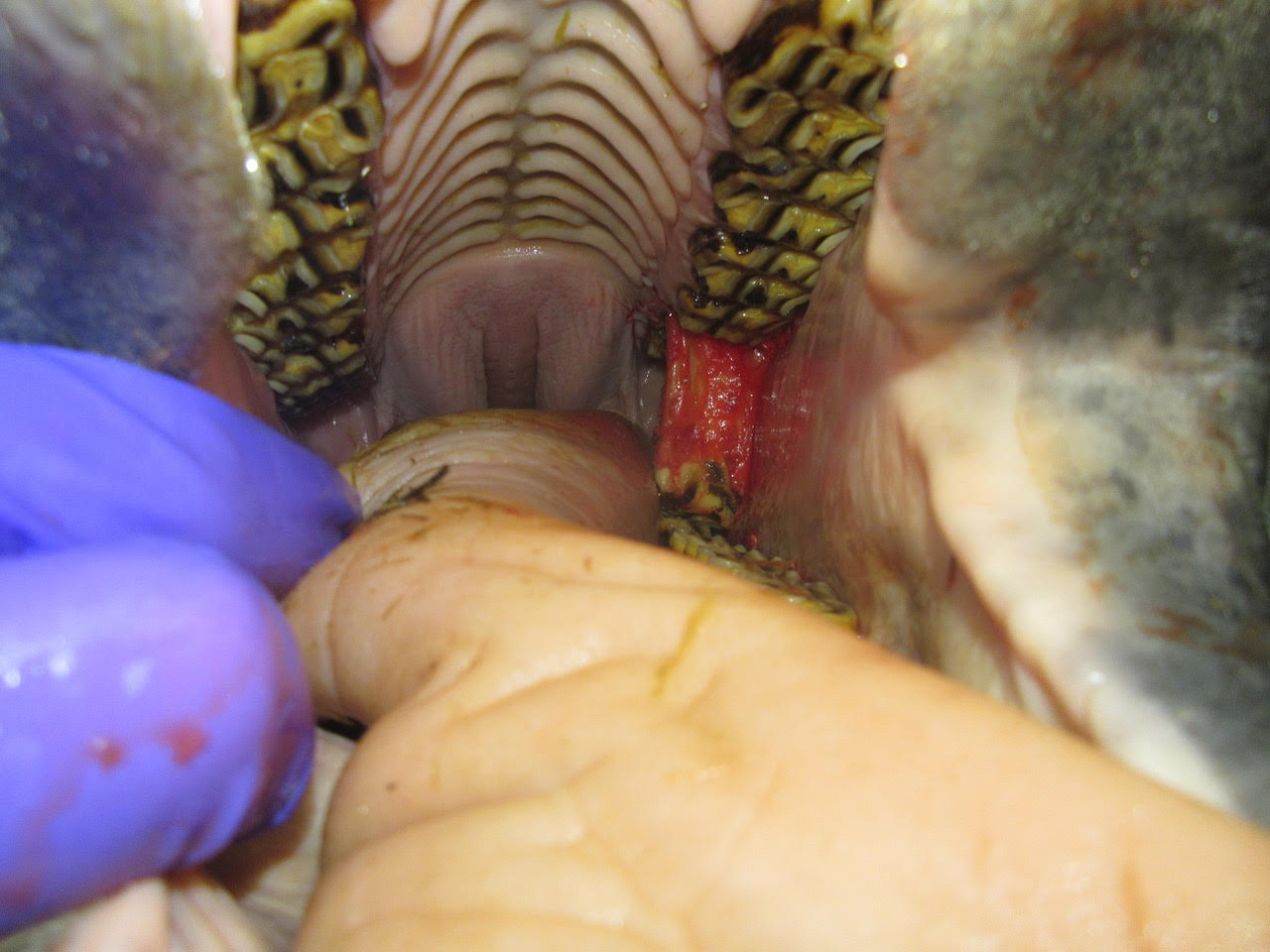 |
|
Oral extraction of an apically infected tooth 210 in a 5 year old horse |
The new resource also includes a useful dental anatomy section and a detailed guide on common dental problems, with informative pictures and explanations of terminology.
“It is imperative to take routine care of your horse’s mouth; pain is not just a welfare issue it can also affect performance,” says Neil. “Be sure to check that your dental care provider can perform a thorough examination of your horse’s mouth – this is likely to involve sedation in all but the best-behaved horses. Appropriate knowledge of dental anatomy and disorders will allow early diagnosis of problems and subsequent treatment to be performed before a serious problem develops.”
Visit BEVA’s new Dentistry resources for horse owners here and remember to follow our #fromthehorsemouth campaign on social media too.
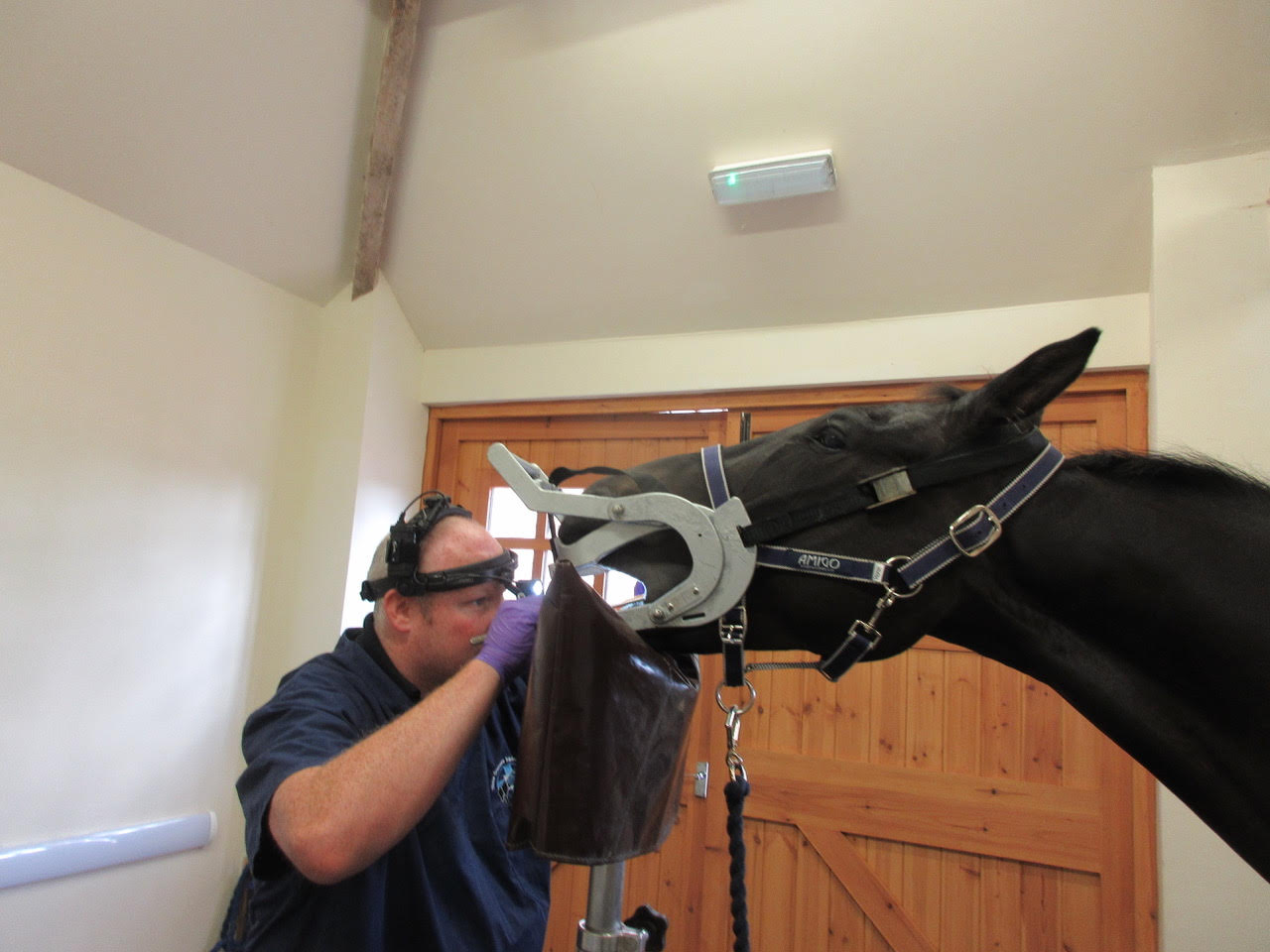 |
|
Sedated dental examination with a headtorch and dental mirror |




